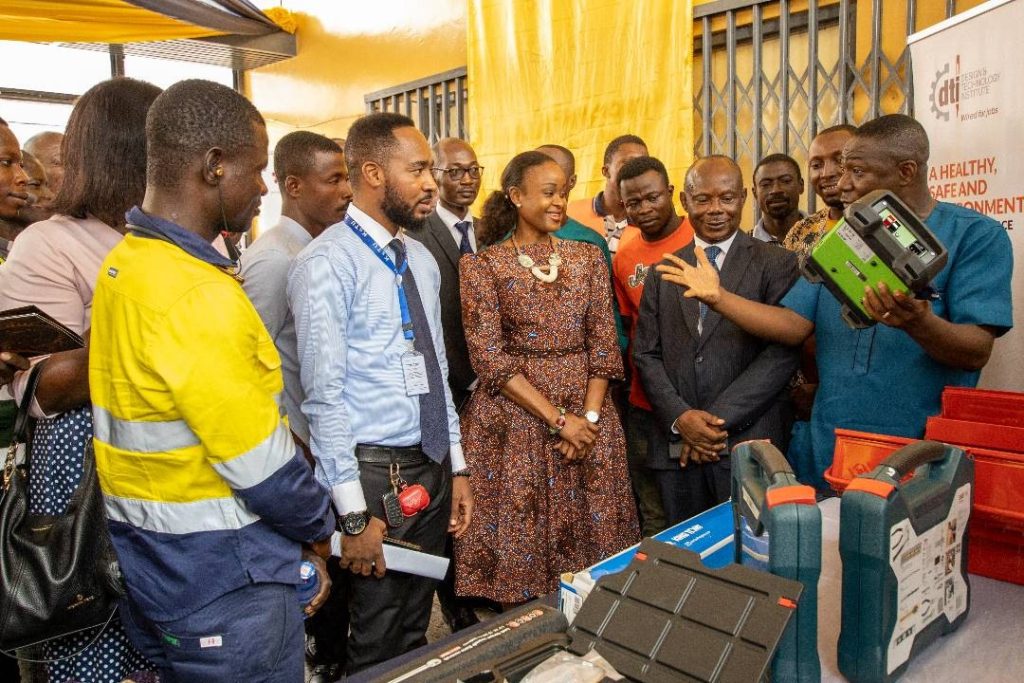By Florence Afriyie Mensah
Kumasi, Dec.13, GNA – The Design and Technology Institute (DTI) has refurbished and retooled the Automotive and Agricultural Mechanization Engineering Department workshop of the Kumasi Technical University (KsTU).
The project, which was undertaken at a cost of GH₵325,000, involved the equipping of the workshop with the state-of-the-art tools to help improve the delivery of Technical and Vocational Education and Training (TVET) in Ghana.
The DTI had earlier signed a Memorandum of Understanding with KsTU to train 23 academic scale advisors and instructors who will be teaching, using Precision Quality (PQ) curriculum to ensure that students graduated with industry-relevant skills and adhere to global industry standards.
Ms Constance Elizabeth Swaniker, Founder of DTI, peaking at the ceremony, stressed the need for pragmatic measures to bridge the gap between academia and industry.
This was why, she noted, “the commissioning of the automotive and agricultural mechanization engineering department workshop will help the University train and position students to gain practical industry skills and knowledge to create value for themselves and the nation.”
Ms Swaniker said the DTI’s objective of adopting the workshop at the KsTU Engineering Department was strategic, adding that, it was to position the University as a model centre and bring it closer to the bustling Suame Magazine, the hub of engineering and automotive industry in the northern sector of the country.
She believed the relationship between master crafts persons and academia would be heightened and attract the private sector to enhance the teaching and learning of TVET students.

Professor Osei-Wusu Achaw, Vice-Chancellor of KsTU, said the implementation of the PQ would spur the University’s quest of becoming a world class technical university.
The Vice-Chancellor used the occasion to call on stakeholders in the automotive industry to collaborate with technical universities in Ghana to train and empower students to reinvent the future with a strong focus through hands-on constructions and internship opportunities.
He said the world was evolving, and the PQ curriculum would provide in-depth knowledge, requisite skills and a platform for students to position themselves to solve Africa’s challenges.
The DTI’s support is in partnership with the Mastercard Foundation under Young Africa Works strategy.
It is to transform youth TVET livelihoods for sustainable jobs and will enable three million young people, particularly women, to access dignified and fulfilling work opportunities by 2030.
Similar MoU’s have been signed by DTI with the Ho Technical University and Takoradi Technical University to serve as model centres to implement the PQ curriculum.
About 5,000 students and 100 lecturers across the three universities will benefit from the initiative.
The PQ curriculum was developed by industry professionals and accredited by the Commission for Technical and Vocational Education and Training (CTVET) to ensure that it addresses the industry’s skills gap.
GNA